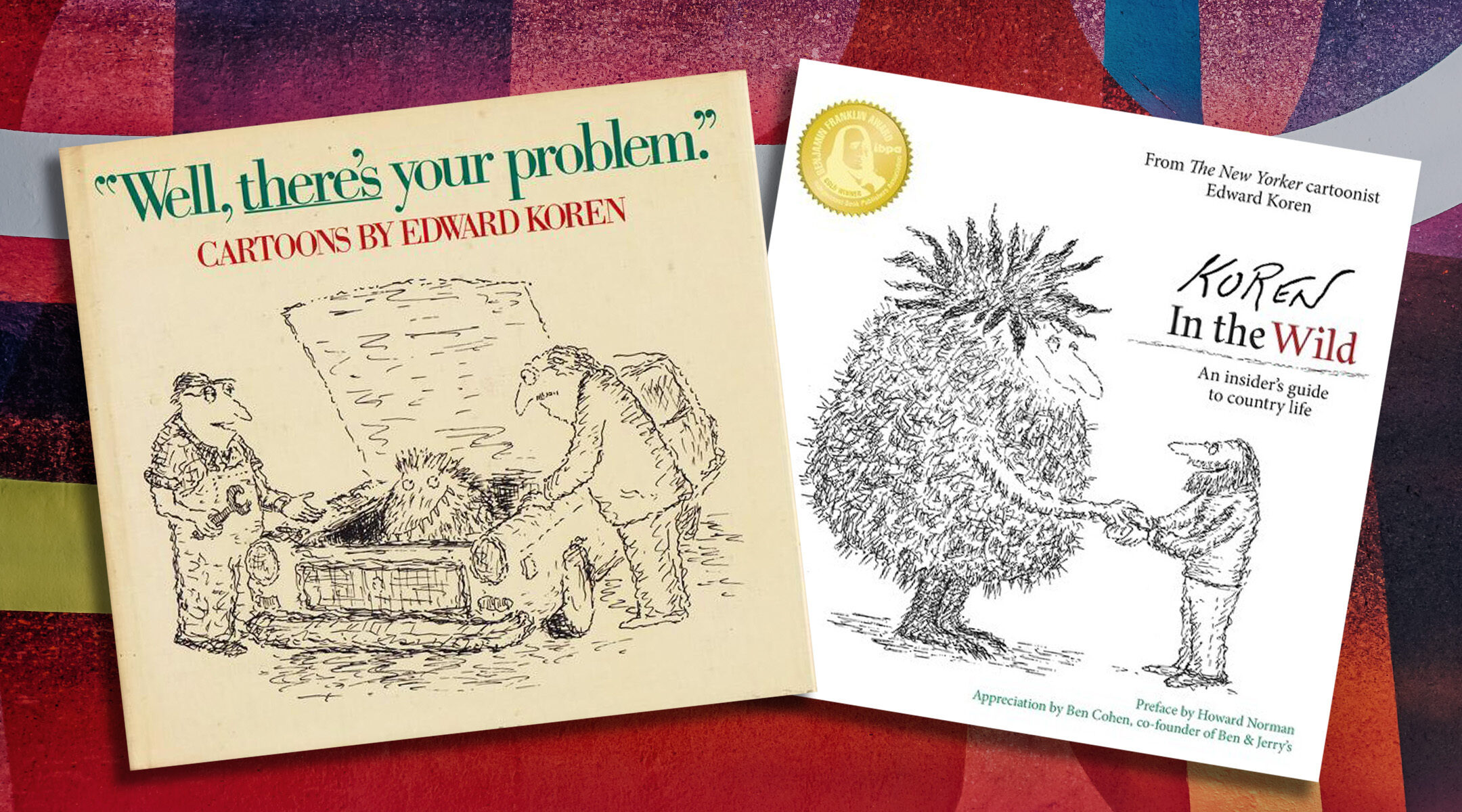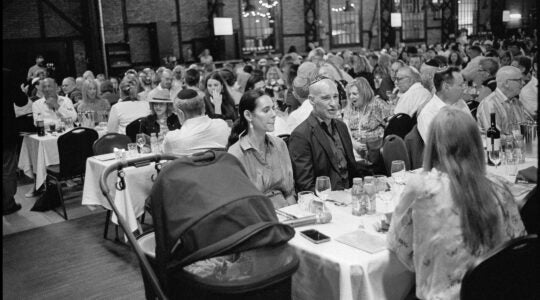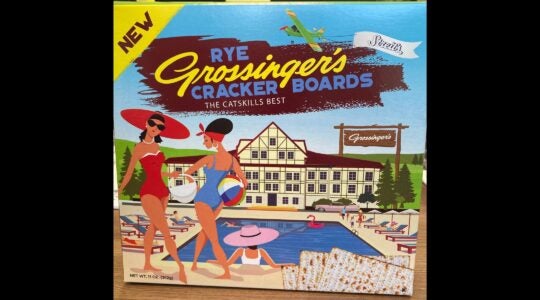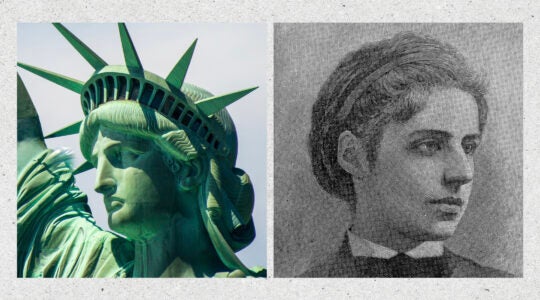(JTA) — The other day I was in a kosher Chinese restaurant and I noticed an older white guy happily eating alone. He had a white shaggy beard and white shaggy hair tucked under a ball cap reading “You had me at coffee.” He looked like a former City College professor who was thoroughly enjoying his retirement.
In other words, he looked like an Ed Koren cartoon.
Koren, who died last Friday at 87, published well over 1,000 cartoons in The New Yorker magazine, starting in 1962. His drawings were instantly recognizable, featuring fuzzy, lumpy, big-nosed people who looked vaguely like gentle animals, and fuzzy, lumpy, big-nosed animals that looked vaguely like amiable people.
His subject matter was also consistent: Middle-class, slightly neurotic characters whose challenges were as minor as they were familiar to the New Yorker’s target readers. In one, set in a restaurant, a well-dressed couple is interrupted at their meal by a waitress who explains, “We think it’s terribly important that you meet the people responsible for the food you are eating tonight.” Behind her is a crowd of farmers, along with a turkey and a cow.
In another, set in a playground, a little girl is eating an enormous ice cream cone. “My parents decriminalized sugar,” she tells her friends.
The New York Times, reviewing an exhibit of his work, once described him as the “poet laureate” of the Upper West Side of Manhattan. The same article also described the neighborhood as “the home of overeducated, comfortable but not super rich liberals and the psychotherapists who treat their garden-variety neuroses.”
I hesitate to lay too much Jewish significance on artists or writers who didn’t make much of their own Jewish identities, but many of Koren’s characters seemed Jewish even if he didn’t say so. And Koren, born to Jewish parents in Manhattan on Dec. 13, 1935, seemed never to have said so. The few references to his Jewish background that I found came via his friends, like Ben Cohen of Ben and Jerry’s, who once told a newspaper, “Like Ed, I’m a Jewish guy from the suburbs of New York City.” (Koren grew up in Mount Vernon, in Westchester County.)
Instead, his characters inhabited a world defined by familiar markers of a white, secular, upper middle class New York: Zabar’s tote bags, fussy restaurants, overstuffed apartments, hovering parents, pampered pets. Not explicitly Jewish, but unmistakably so, like the Upper West Side itself.
Koren attended Horace Mann School in the Bronx, and edited the Jester, the student humor magazine at Columbia College. After graduation he worked odd jobs, then got a Master of Fine Arts degree at Pratt and taught printmaking, drawing and design courses at Brown University for 13 years. When he wasn’t drawing cartoons (“I couldn’t survive as a cartoonist, frankly,” he once explained) he did illustrations for other magazines, books and advertisers, and made prints that were shown in gallery shows.
He became a full-time resident of Vermont in 1982, but even his cartoons set in the countryside often featured city dwellers adjusting — clumsily — to rural life. (A pair of hikers are stuck in a tree as a pair of furry beasts shake the trunk. The man says to the woman, “Tell them how hard we’ve worked to protect their habitat.”)
Despite the city’s changes, Koren cartoons still come alive on Amsterdam Avenue and in Riverside Park. Bearded, older dads pushing toddlers in strollers. Vaguely bohemian women walking dogs who look just like them. Precocious tots already thinking about their college essays.
“I’m a social historian in a funny way, I guess. Or, looking at it another way, an armchair anthropologist,” Koren told an interviewer in 2012. “What I find funny is the formulaic way in which people go about their lives and the absurd, silly things they do — unreflectively, unthinkingly, intensely, humorlessly. All those things intrigue me. It’s an endless well of delight and absurdity.”
All of which is to say that some people contribute to the Jews’ self-understanding without, like Koren, wearing their Jewishness on their sleeves or anywhere else. I recently covered an exhibit of Yiddish holdings from the library at the Jewish Theological Seminary. There are cartoons on display that show Jewish immigrants as they were at the turn of the 20th century – peddlers, rabbis, cobblers, garment workers. Perhaps 100 years from now certain kinds of New York Jews of the late 20th and early 21st century will be represented by an Ed Koren cartoon.
The New York Jewish Week brings you the stories behind the headlines, keeping you connected to Jewish life in New York. Help sustain the reporting you trust by donating today.





